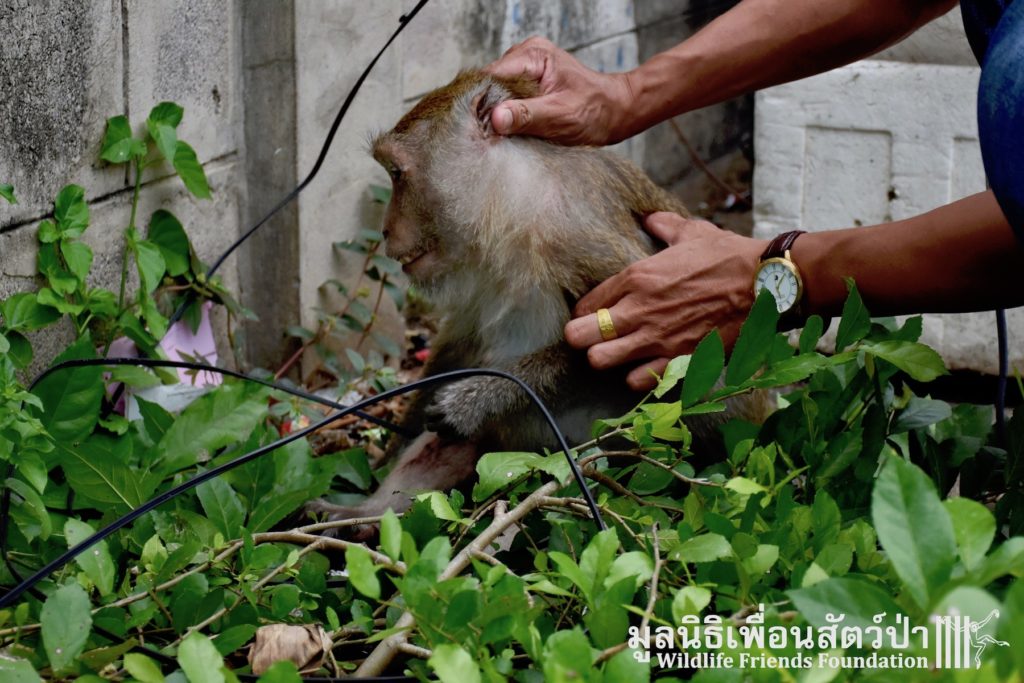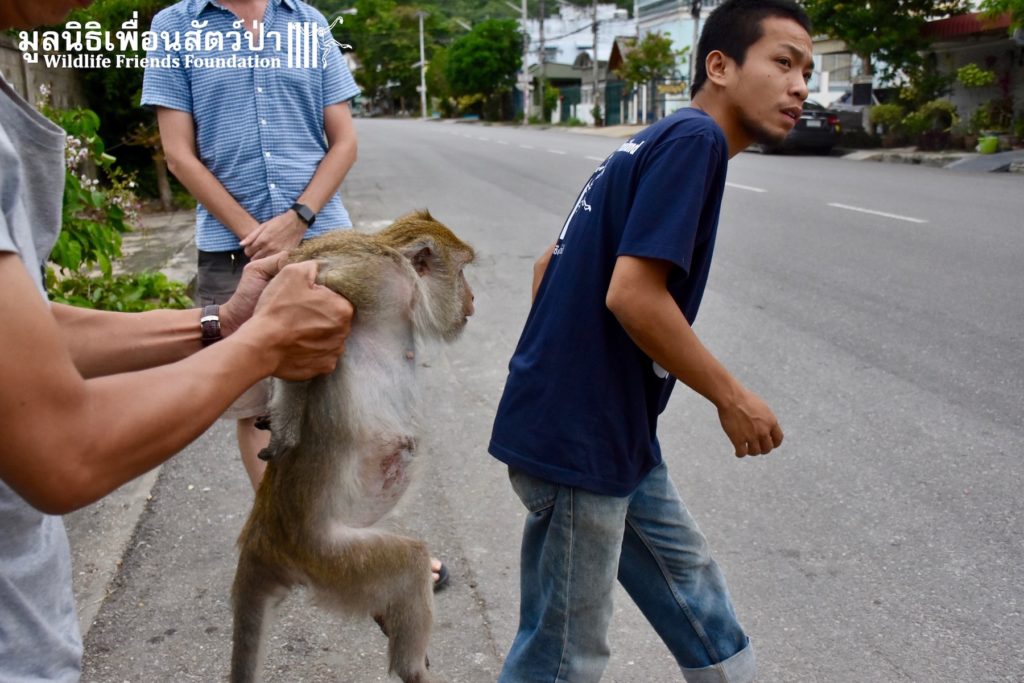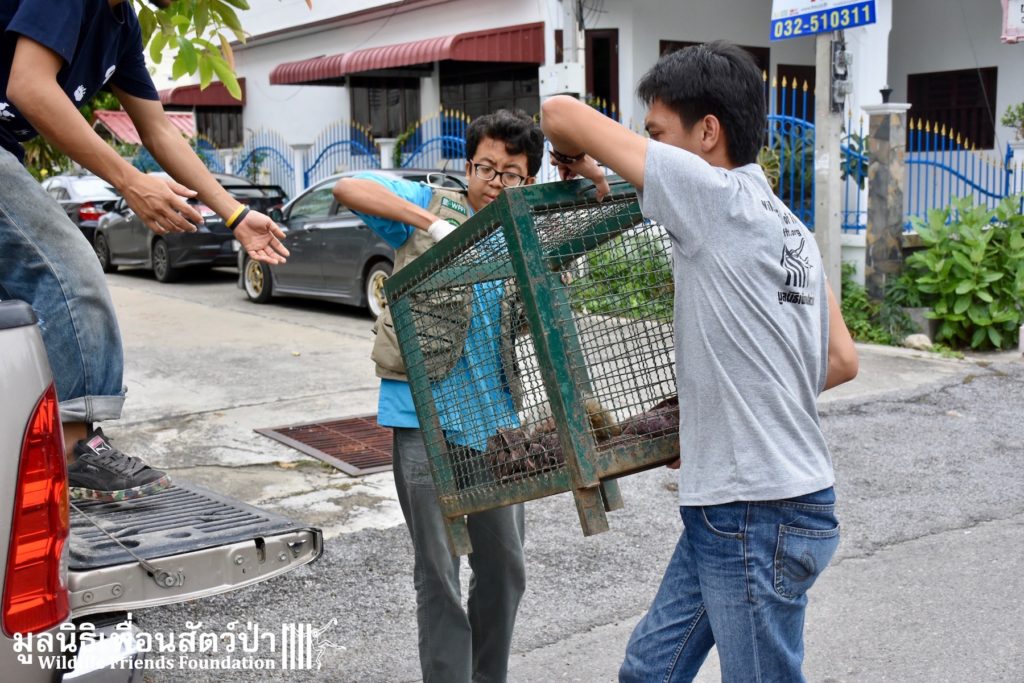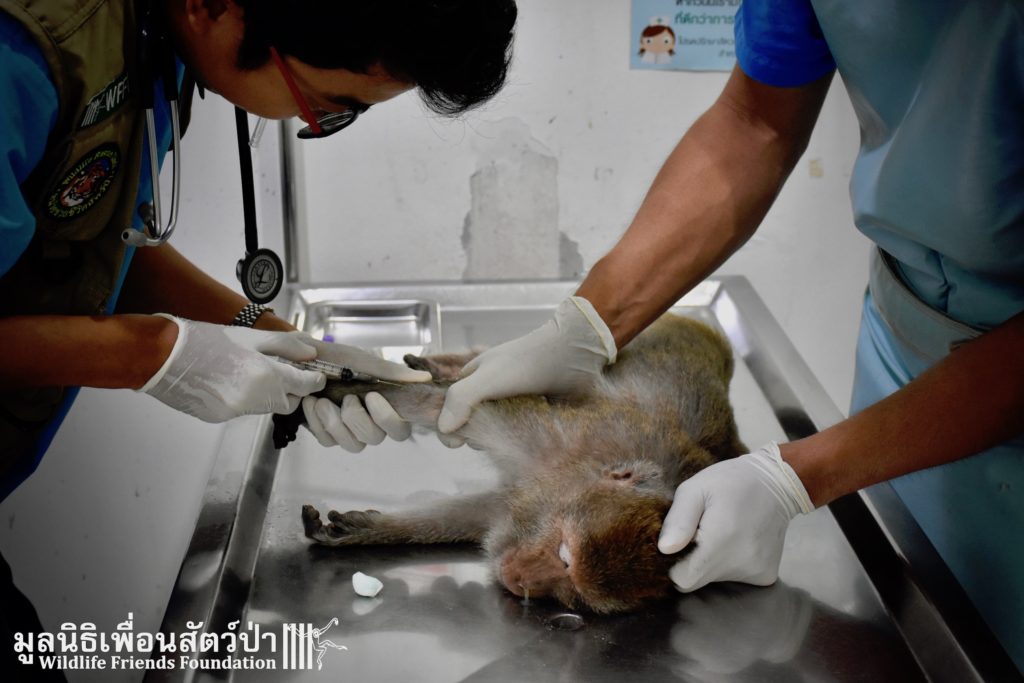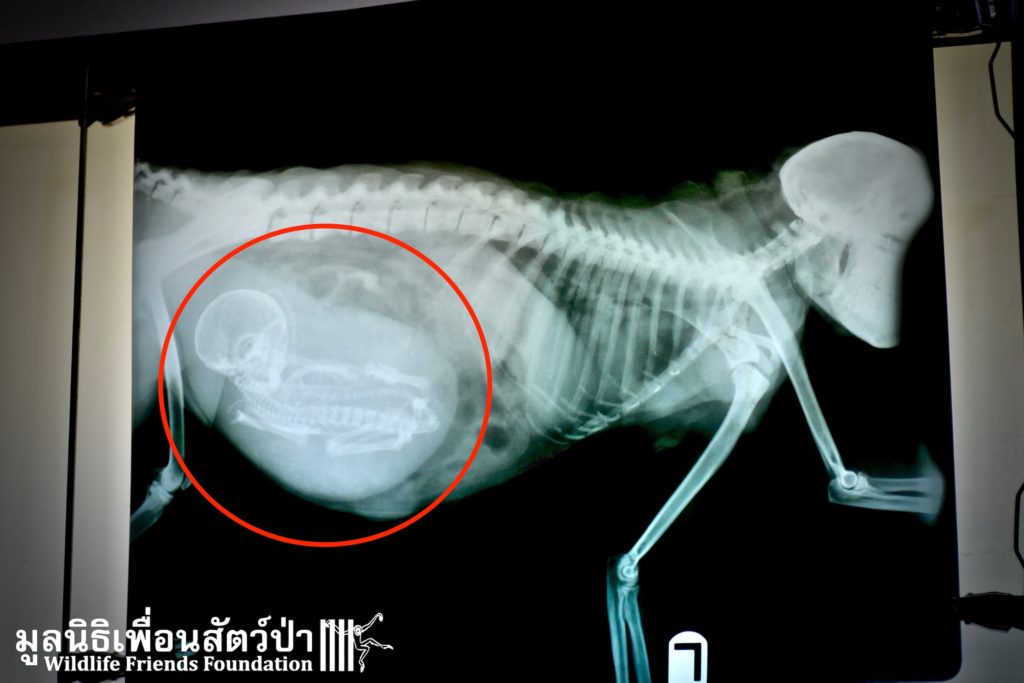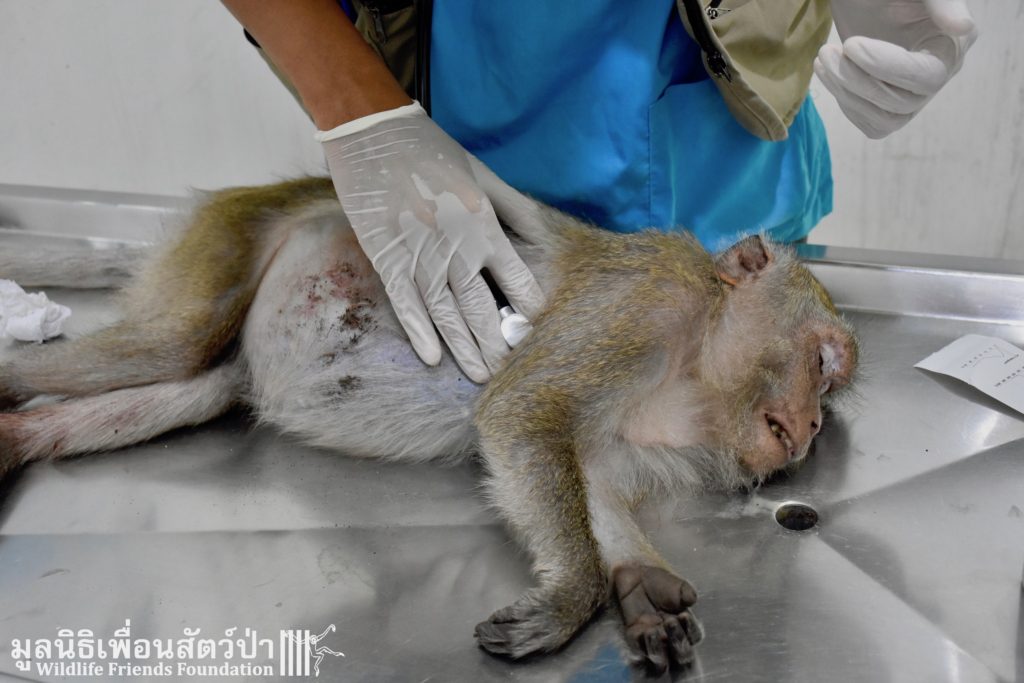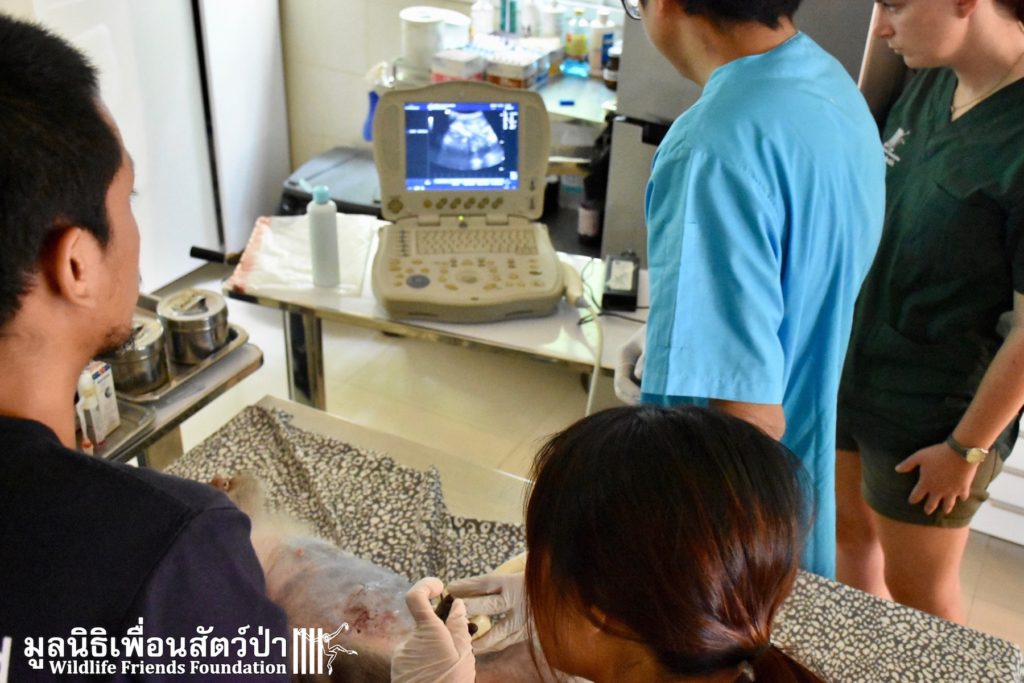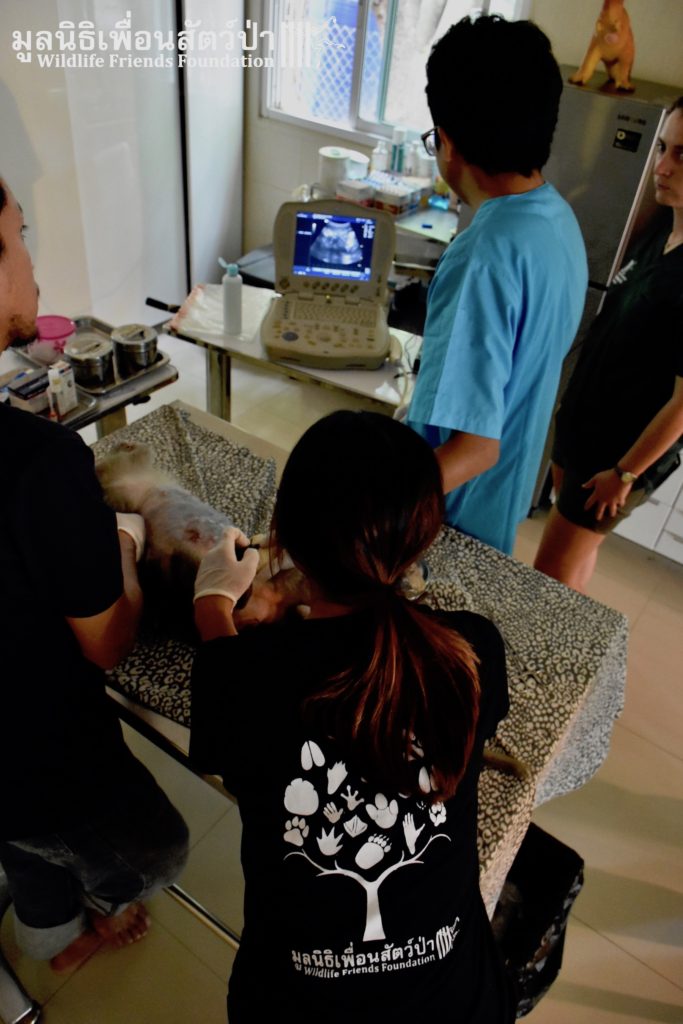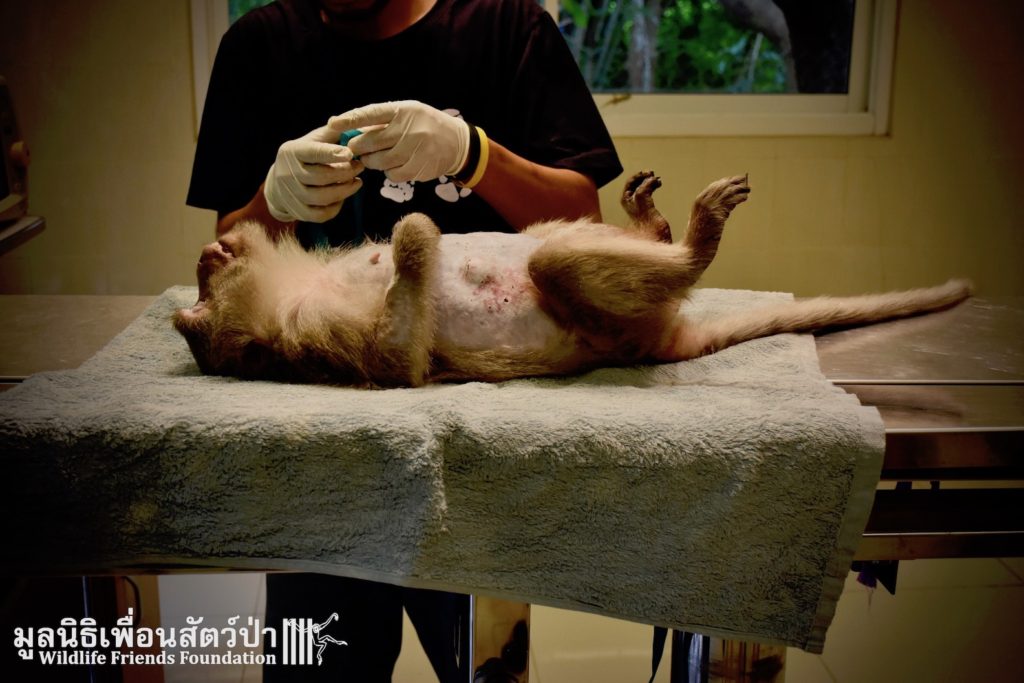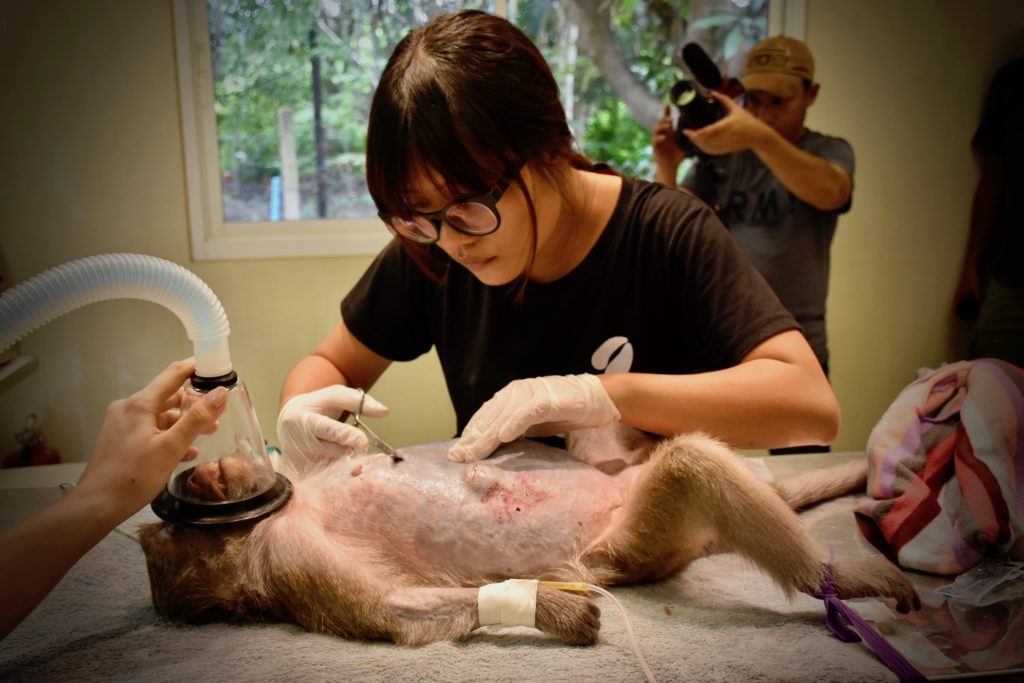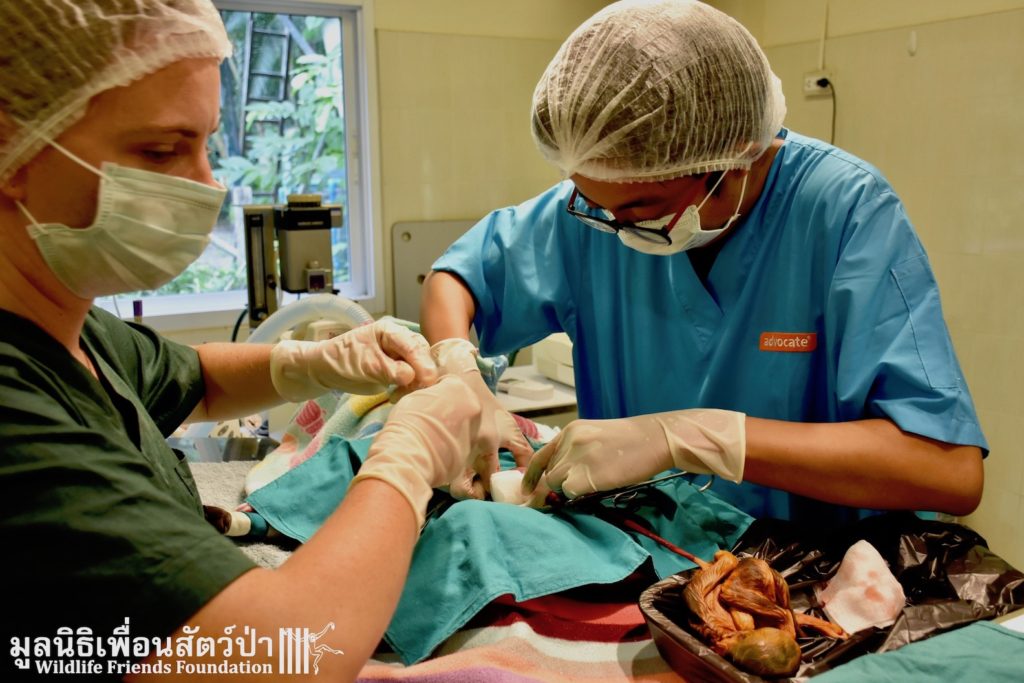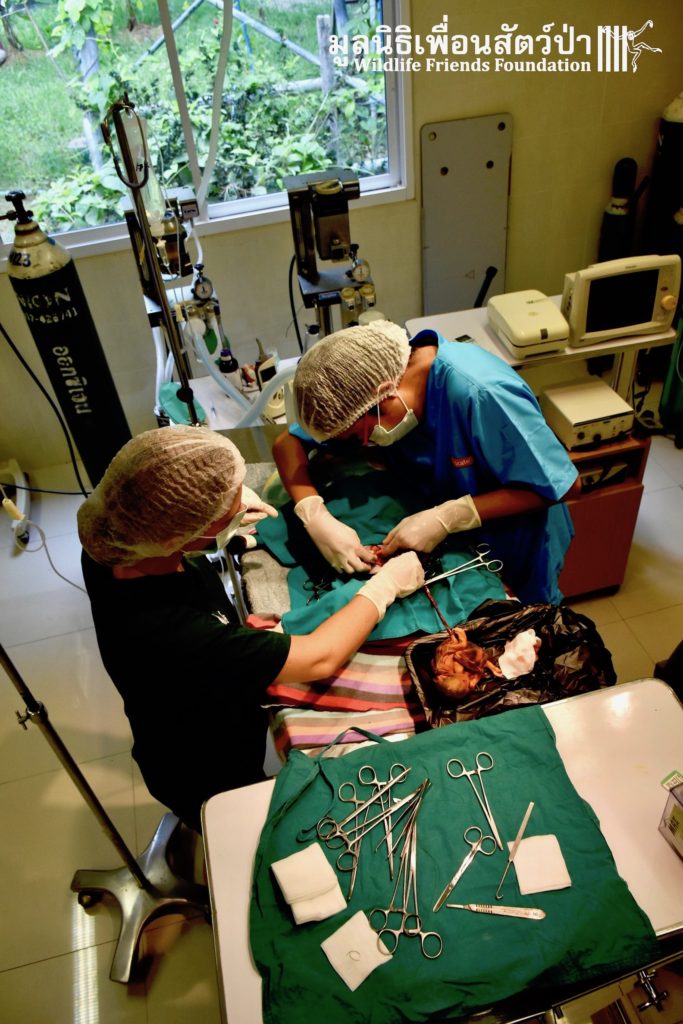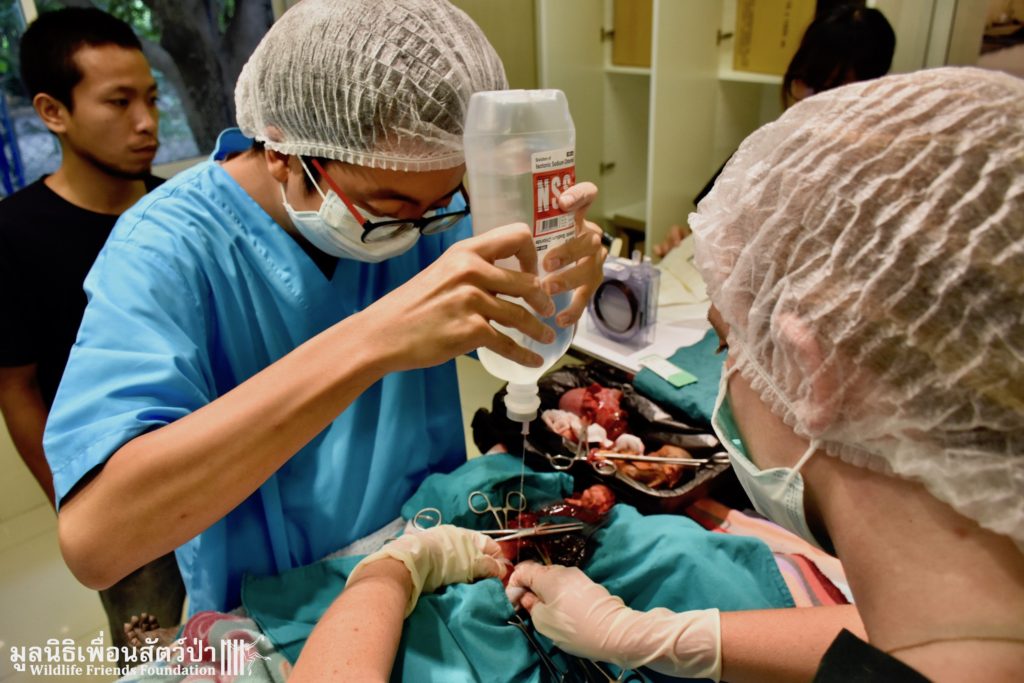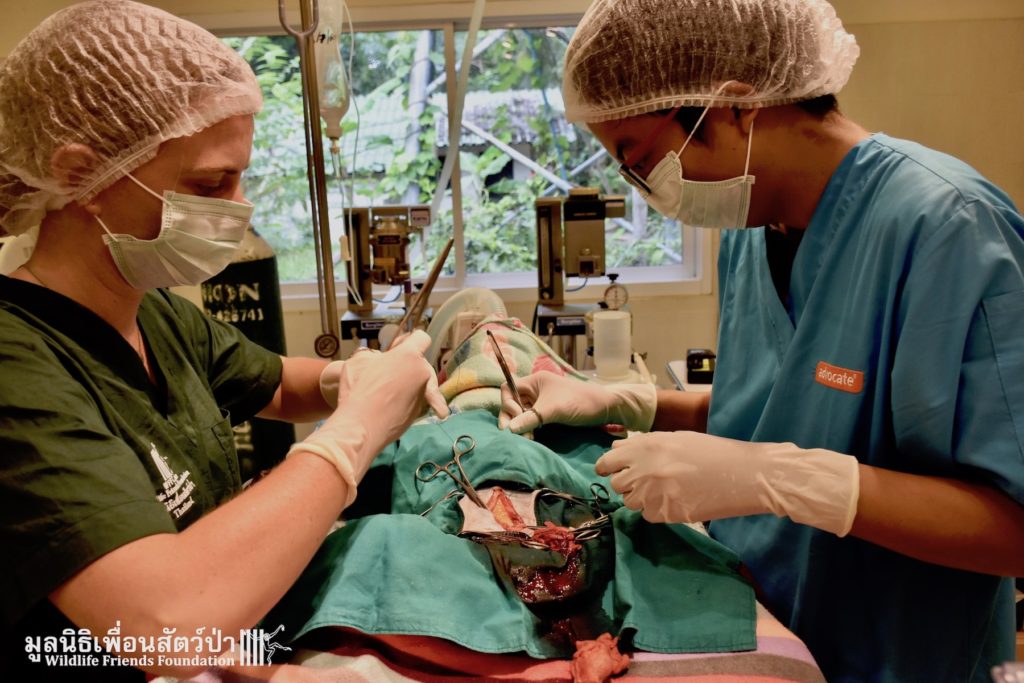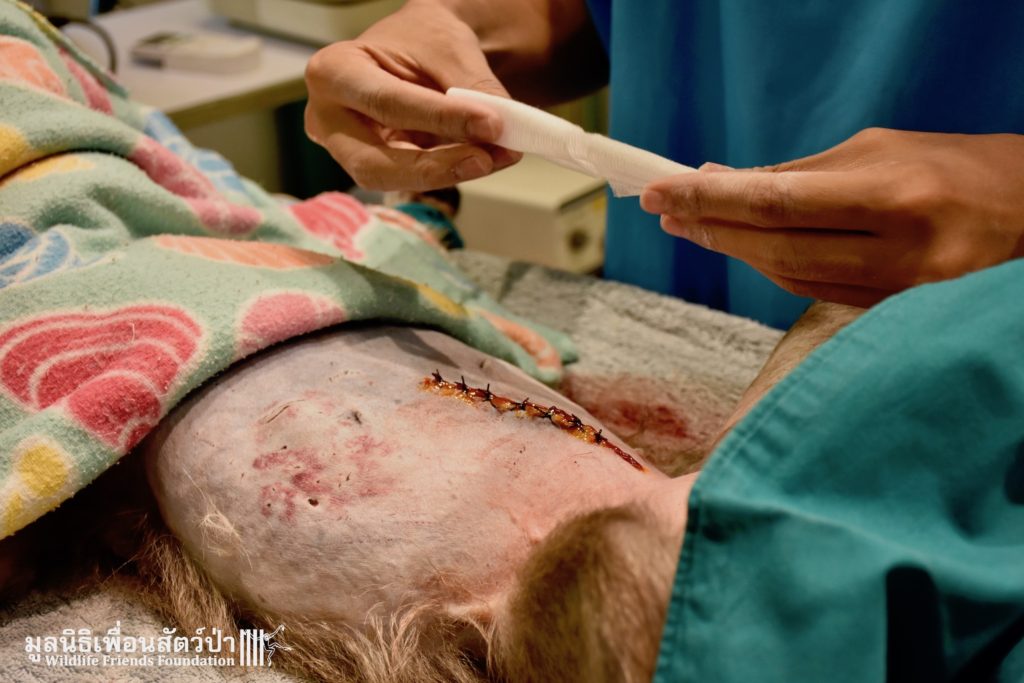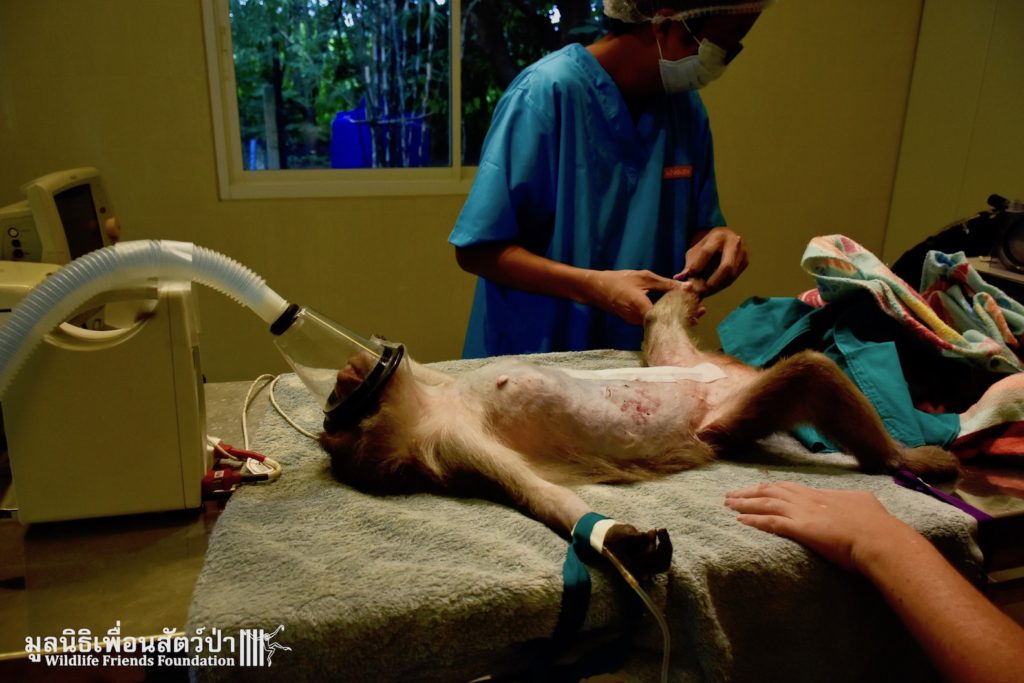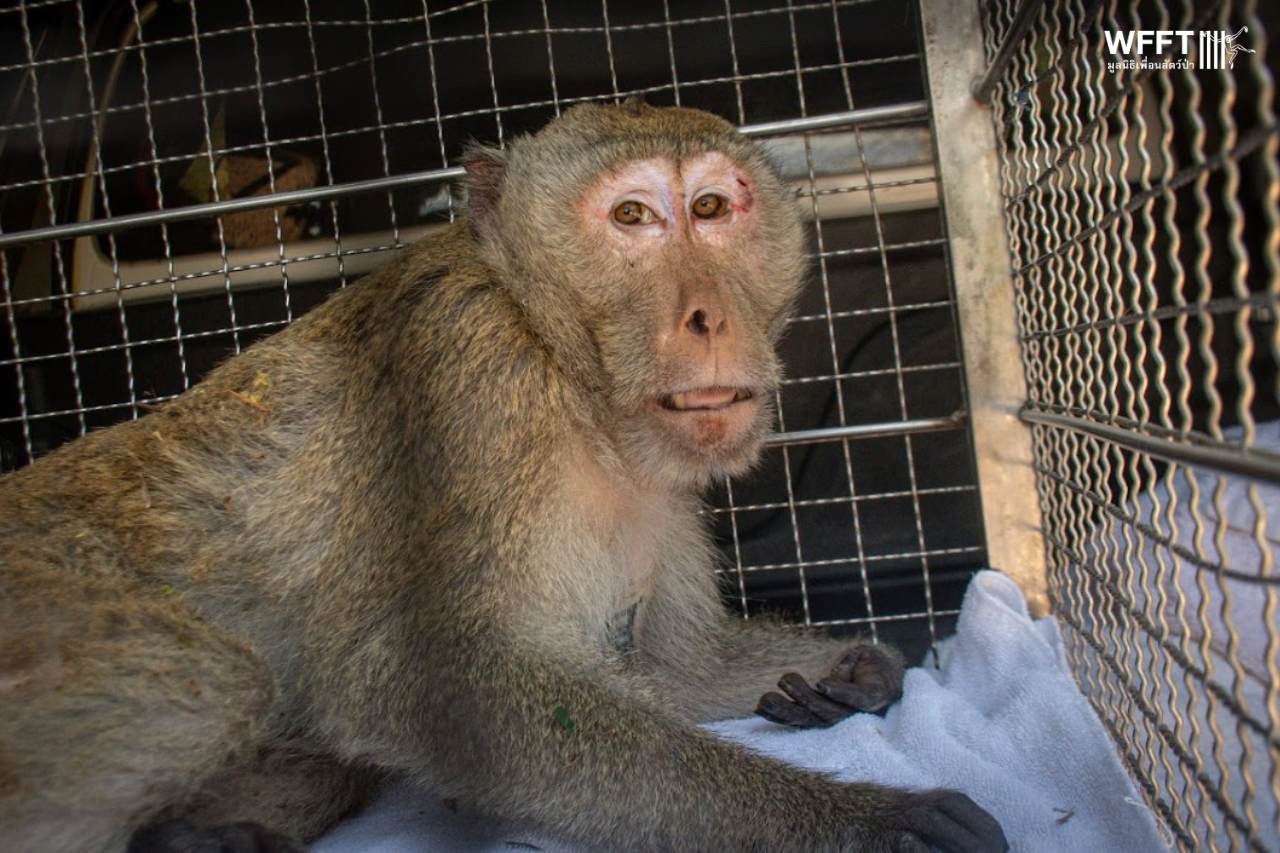It's time to take action—learn how you can help stop this exploitation and protect slow lorises from further harm.
Emergency Rescue – Pregnant Macaque
Yesterday we received a telephone call from a concerned resident in Hua Hin, who had found a severely injured female long-tailed macaque (Macaca fascicularis) next to a garbage collection area at the side of a busy road. The WFFT Wildlife Rescue Team headed straight to try and save this monkey. Open arrival to the scene they found a very weak, almost unresponsive macaque on the ground. We do not know why she was found in such a weakened state, she may have been involved in a road traffic accident, or be suffering from an illness. She was loaded on the rescue vehicle and rushed straight to an animal x-ray clinic to help the vet team properly diagnose the problem. She was then transported to the WFFT Wildlife Hospital for further assessment and treatment.
The long-tailed macaque is listed as Least Concern (LC) by the IUCN Red list of Threatened Species, in view of its wide distribution, presumed large population, tolerance of a broad range of habitats, occurrence in a number of protected areas. Habitat loss and degradation due to human encroachment onto once wild lands, poses the biggest threat to all macaque species. They are regularly persecuted as pests. Increasing competition between macaques and humans due the forever growing need of land for agriculture and other human activities is the foremost reason that macaques are persecuted as pests. Hostile encounters with macaques are common in urban areas due to the active promotion of their presence for spiritual and entertainment purposes by provisioning food for the macaques. We (humans) both promote population growth through the provision of food and the protection habitat, and on the other hand we hinder it through the continued fragmentation of habitat, capture and exportation for research, and the pet-trade.
WFFT is working with a parliamentary committee here in Thailand to address the urban macaque overpopulation locations, with the aim of creating solutions to help solve this problematic situation
We have named this macaque Chomsin, after the road she was found on. Upon arrival to the WFFT Wildlife Hospital the vet team performed an ultrasound to check on the health of the unborn infant. Sadly, the ultrasound reveled that the infant was dead. Chomsin was rushed into emergency surgery to perform an abortion in the hope that we could at least save her life. The infant was successfully removed and less than 24 hours later, Chomsin is now sat up eating and drinking. However, this does not mean she is out of the woods yet, we will only be able to tell over the next few days if she will make it, and if she does she will be released back to the wild. We will keep you posted on her progress.

